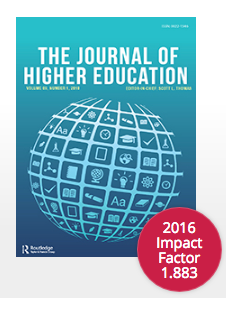Some research suggests a crisis of public confidence in universities and colleges in the United States. But approaches to theorizing confidence in higher education do not examine how confidence varies across social contexts, while empirical efforts to document confidence are characteristically limited by weak construct validity. Drawing on a nationally-representative survey of 10,241 Americans, we develop a conceptual framework that examines how political ideology, religion, parental career encouragement, and demographic factors correlate with confidence in higher education. Only fourteen percent of the US public reports “a great deal” of confidence in higher education. Evangelical Protestants, Catholics, Jews, individuals who perceive a conflict between science and religion (and are on the side of religion), and political conservatives are significantly less likely to report confidence in higher education, while parents who report the strongest encouragement of professional career paths for their children are significantly more likely to report confidence in higher education.



